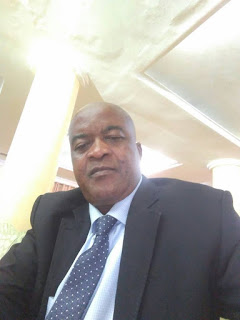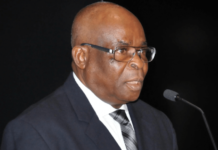 |
| Victor Tayo Omodara |
The debate on local government autonomy in Nigeria has been on for a very long time, with a near success in 2014, due to the inability of the Nigerian Union of Local Government Employees (NULGE) to secure the two third majority votes of the state houses of assembly.

It is the belief that the advocates, especially teaming members of NULGE that local government autonomy would bring about the much desired development of rural communities across Nigeria. However, it is unfortunate that local government in Nigeria do not enjoy any form of autonomy as enshrined in the 1999 constitution because of the frequent and undue interference in local government affairs by the state especially in the aspect of finance and democratic governance.
As at today, we are all living witnesses to high level of instability in the administration of local government system in Nigeria as council administrators are either not allowed to function as they are choked by the state government through the introduction of state-local government joint account or most often terminated prematurely andi replaced with caretaker committee made up of political cronies and rookies of government in power.
WHAT A MANNER OF LOCAL GOVERNMENT AUTONOMY?
”Local government is the most important tier of government. It is the closest to the people! Why should it not be independent? It is only by being independent as a true third tier of government that truluy democracy and sustainable development can be guaranteed. The intention of the 1999 constitution is very clear on this.” — Governor Ganduje of Kano State.
Autonomy means true democracy, integrated, all inclusive development and freedom of everyone since we all come from one local government or the other.
From all indications, autonomy for local government will ensure development at the lowest level, strengthen democracy, restore 5% allocation to our traditional rulers, lead to improved lives, guarantee youth employment and safeguard national security.
Apart from being a recipe for rural social integration, autonomy will greatly address the challenges posed by the minority groups who feels excluded from the mainstream of political economy while also serving as training and recruitment grounds for higher political offices.
It therefore stew from ignorance the recent ”protest” against local government autonomy by the Nigerian Union of Teachers (NUT). It is a pathetic pretence meant to misinform the State House of Assembly and the general public that they do not understand that the liberation of local n is synonymous with the liberation of the entire citizens of Nigeria.
For the purpose of clarity, the issue of autonomy to local government in Nigeria goes beyond the confines of salaries of teachers or workers welfare alone. It is an issue that directly affect everyone. It also includes administrative autonomy as the Union is also seeking constitutional recognition of the Local Government Service Commission.
It is interesting to note that all the variables of local government autonomy relate to the general welfare of Nigerians including the teachers. If the primary school teachers are afraid of the autonomy because of their salaries, then they are talking of only one element which we believe is very important too.
It is as a result of the priority we place on salaries and welfare of teachers that we have conspicuously included in our demand that salaries of primary school teachers be placed in first line change from the federation account.
The laudable position was jointly canvassed at the joint Senate and House of Representatives Committee in the review if the 1999 constitution Joint Working Retreat at the Intercontinental Hotel, plot 52, Kofi Abayomi street, Victoria Island, Lagos between 13th and 16th July, 2017. The committee was jointly addressed by the leadership of the Nigerian Labour Congress (NLC), Nigerian Union of Local Government Employees (NULGE), Nigerian Union of Teachers (NUT) and the Medical and Health Workers Union of Nigeria (MHWUN).
By the provisions of the current constitution, the responsibility for the payment of primary school teachers rest on the state government. Also, a look at the Supreme court judgement if 2004 clearly pronounced and declared that the responsibility for shouldering primary school teachers is squarely that of the state governments. But the decision of the Supreme court has continued to be flagrantly violated by the state government while the law itself has failed to punish offenders.
Today, there are many states including Ondo state having backlog of teachers’ salaries can be constitutional my addressed by putting it on the first line charge. Gladly enough, the National Assembly has accented to it waiting for the concurrence of the State Houses of Assembly.
Flowing from above, it is expected that the NUT should stand in support of local government autonomy in such a way that the problem of their salaries can be solved by making it a first line charge rather than standing against the will of majority of Nigerians!
Victor Omodara is the Publicity Secretary of the Nigeria Union of Local Government Employees (NULGE) Ondo State chapter.










